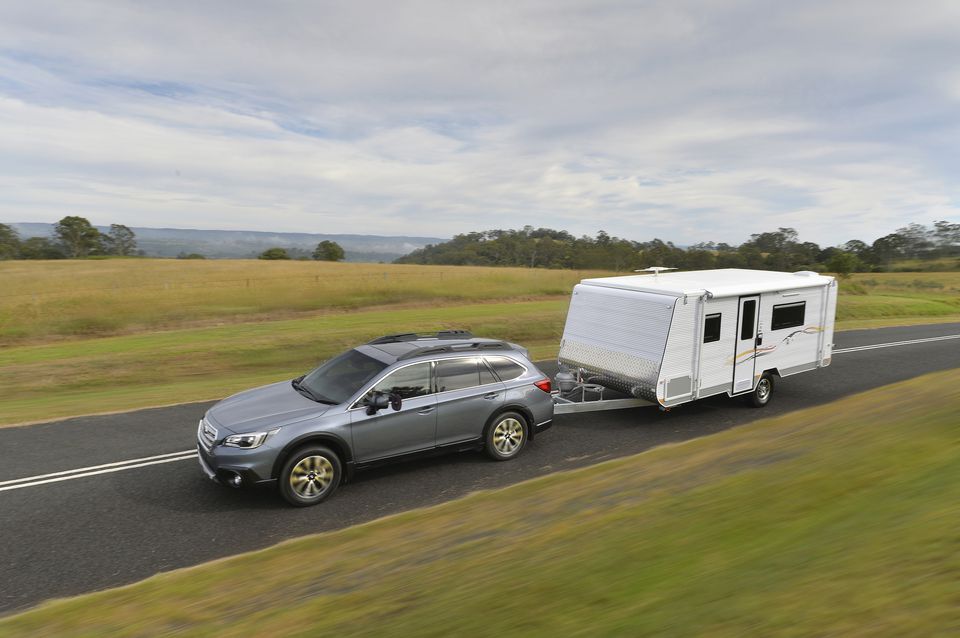
GET THE BEST ADVICE TO FIND THE RIGHT TOWING SOLUTION
Explore our range of tow bar options today to find your ideal tow bar solution. From trailer, to horse box to caravan towing, whether personal or trade, we can assist you in finding the right tow bar for your needs. If you’re not sure which tow bar may be the best option for you, don’t hesitate to call our friendly team for further advice.
Our mobile towbar fitting service can come to you at your home, place of work, storage facilty or even your holiday location. Get in touch today to get your free quote and book your installation.
Towbars Explained
Fixed – Flange bolt on ball
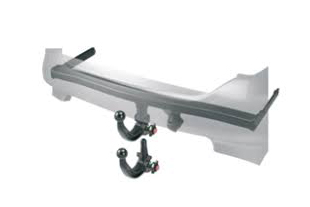
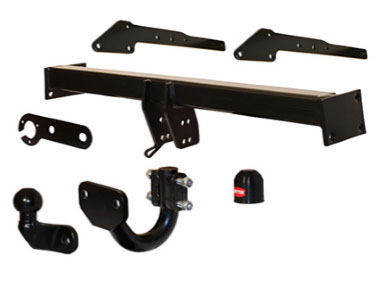
Towing Electrical Options
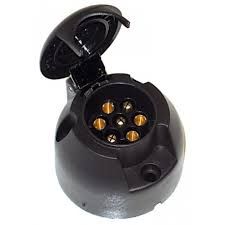
7 Pin (12N) Socket
Twin 7 Pin (12N and 12S) Sockets
A 7-pin socket, also known as a '12Normal' or '12N socket',
is the minimum tool requirement for towing a
trailer or caravan on UK roads. The '12N socket' contains
seven connections that connect the rear lights
of your vehicle to a trailer or caravan.
The light connections
passing through the socket are the brake,
left and right-side lights, left and right indicators, and the
fog light. The seventh connection is an earth
supply for the trailer lights.
7-Pin electrical connections are commonly installed
using a bypass or smart relay. Although,
vehicle-specific manufactured kits are becoming
increasingly popular and can cost significantly more.
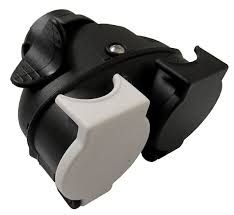
Twin 7 Pin (12N and 12S) Sockets
A twin 7-pin socket installation consists of a '12N socket' and a '12S' (supplemental).
The additional '12S' socket provides 12-volt power functionality and the reverse light
connection to the trailer or caravan. The 12-volt supply consists of one permanent f
eed and two switched feeds. This permanent feed provides power to devices such
as the automatic stability control (ATC) for a caravan and the switched feeds
provide power for a fridge and charging circuit. Twin 7-pin electrical connections
are commonly installed using a bypass or smart relay and split charge relay.
Vehicle specific manufactured kits are also available but can be expensive.
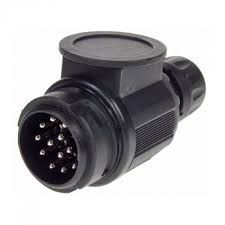
13 Pin Socket
A 13-pin socket is a recently introduced vehicle standard that is more
commonplace across Europe with caravans manufactured in 2005 and
onwards tending to have a 13-pin plug. This 13-pin socket performs
similarly to a twin 7-pin socket and can be installed to control lighting
without the function of the 12-volt power. The electrical sockets are
installed with either a bypass, smart relay, or a split charge relay if
12-volt functionality is required. Lighting only and fully functional
vehicle specific manufacturer kits are also available.
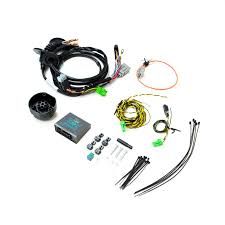
Vehicle Specific Kits (VSK)
Newer vehicles can be technologically advanced with complex safety
systems such as stability control, self-levelling suspension,
and adaptive cruise control. A Vehicle-Specific Kit or 'VSK' connects
to the wiring-harness via a towing adapter plug, located in
the rear of the transport. However, some towing adapters
are located at the front of a vehicle and may require an 'ECU'
recording. In some instances, vehicles may already be pre-coded
and only become active after 'VSK' installation. In the future, the
complexity of new vehicles will most likely lead to all vehicles
requiring a 'VSK' for towing requirements.



